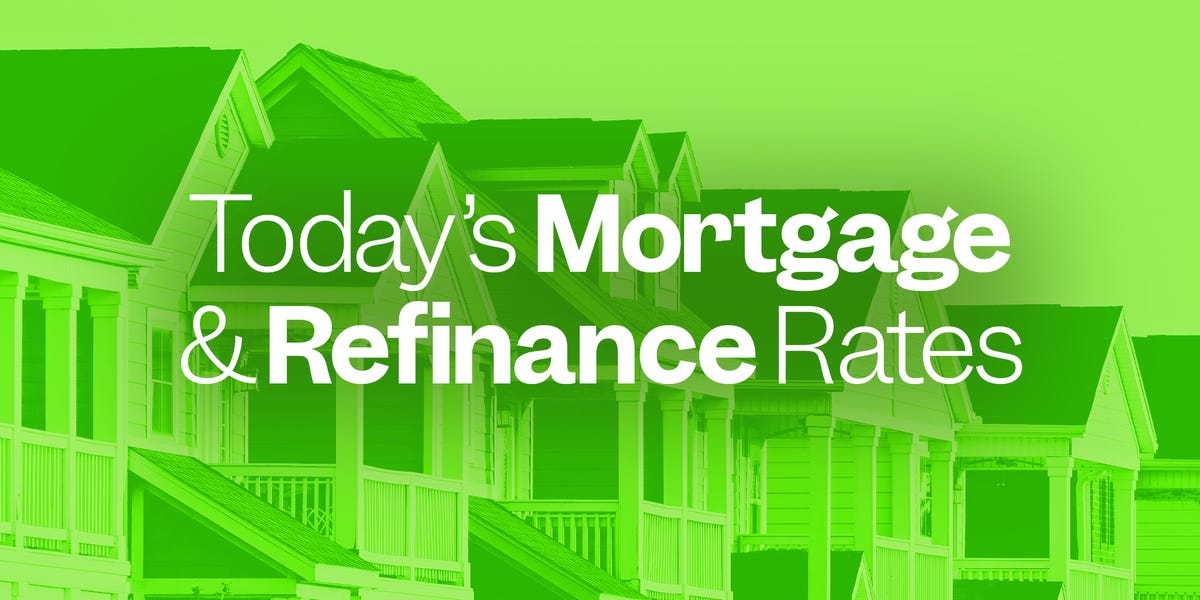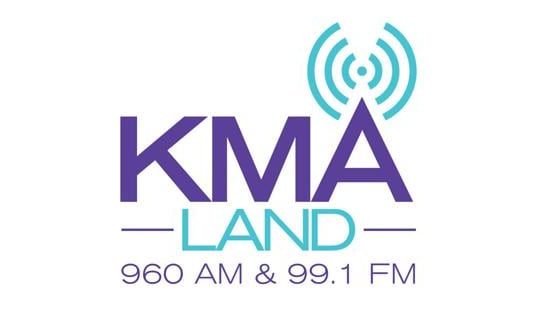Last week, mortgage rates nearly topped 7% as markets feared President Donald Trump would fire Federal Reserve Chair Jerome Powell. After he said he has “no intention” of firing Powell, rates receded.
But the turmoil likely isn’t over for mortgage rates. The economic effects of Trump’s trade war have yet to play out. If tariffs lead to higher inflation, we could see rates tick up again.
It’s also possible that tariffs could put the economy in a recession, which would likely lead to lower mortgage rates.
As more data is released over the next few months, rates could experience some volatility. If the labor market starts to show signs of weakening or economic growth slows, mortgage rates may ease. But if the economic situation remains relatively stable and prices start rising, borrowers should expect higher rates.
What Are Today’s Mortgage Rates?
| Mortgage type | Average rate today |
|
|
|
|
|
|
|
|
|
|
|
|
|
|
|
|
|
|
|
|
|
What Are Today’s Refinance Rates?
| Mortgage type | Average rate today |
|
|
|
|
|
|
|
|
|
|
|
|
|
|
|
|
|
|
|
|
|
Mortgage Calculator
Use our free mortgage calculator to see how today’s interest rates will affect your monthly payments.
Mortgage Calculator
$1,161
Your estimated monthly payment
- Paying a 25% higher down payment would save you $8,916.08 on interest charges
- Lowering the interest rate by 1% would save you $51,562.03
- Paying an additional $500 each month would reduce the loan length by 146 months
By clicking on “More details,” you’ll also see how much you’ll pay over the entire length of your mortgage, including how much goes toward the principal vs. interest.
Current 30-Year Mortgage Rates
Average 30-year mortgage rates have been hovering around 6.70%, according to Zillow data. Rates averaged around 6.45% in March.
The 30-year fixed-rate mortgage is the most popular home loan. With this type of mortgage, you’ll pay back what you borrowed over 30 years, and your interest rate won’t change for the life of the loan.
The lengthy 30-year term allows you to spread out your payments over a long period of time, meaning you can keep your monthly payments lower and more manageable. The trade-off is that you’ll have a higher rate than you would with shorter terms, like a 15-year mortgage.
Current 15-Year Mortgage Rates
Average 15-year mortgage rates are around 6%, according to Zillow data. In March, 15-year rates averaged 5.79%.
If you want the predictability that comes with a fixed rate but are looking to spend less on interest over the life of your loan, a 15-year fixed-rate mortgage might be a good fit for you. Because these terms are shorter and have lower rates than 30-year fixed-rate mortgages, you could potentially save tens of thousands of dollars in interest. However, you’ll have a higher monthly payment than you would with a longer term.
Current Mortgage Refinance Rates
Refinance rates have been similar to purchase rates recently. In March, 30-year refinance rates averaged 6.49%, while 15-year refinance rates were around 5.80%.
How Much Do Mortgage Rates Need to Drop to Refinance?
If you’re wondering if you should refinance now, you’ll need to crunch the numbers to see if it makes sense. Some experts advise only refinancing if you can reduce your rate by a percentage point or more, but it really comes down to whether it works for your individual circumstances.
If you can save enough each month by refinancing that you can recoup your costs in a reasonable amount of time, it might be worth it. You can calculate this by dividing your closing costs by the amount you’re saving on your monthly mortgage payment. So, if you paid $3,000 to refinance and were able to lower your monthly payment by $200, it would take you 15 months to break even on your refinance.
5-Year Mortgage Rate Trends
Here’s how 30-year and 15-year mortgage rates have trended over the last five years, according to Freddie Mac data.
What Factors Influence Mortgage Rates?
Mortgage rates are determined by a variety of different factors, including larger economic trends, Federal Reserve policy, your state’s current mortgage rates, the type of loan you’re getting, and your personal financial profile.
While many of these factors are out of your control, you can work on improving your credit score, paying off debt, and saving for a larger down payment to ensure you get the best rate possible.
How Does the Fed Rate Affect Mortgage Rates?
The Fed increased the federal funds rate dramatically in 2022 and 2023 to try to slow economic growth and get inflation under control. Inflation has since slowed significantly, but it’s still a bit above the Fed’s 2% target rate.
Mortgage rates aren’t directly affected by changes to the federal funds rate, but they often trend up or down ahead of Fed policy moves. This is because mortgage rates change based on investor demand for mortgage-backed securities, and this demand is often affected by how investors expect Fed policy to affect the broader economy.
The Fed lowered rates three times in 2024, but how much they’ll cut this year depends on how the economy evolves.
Will Mortgage Rates Drop in May 2025?
Mortgage rates have gone up this month, and because there’s so much uncertainty in the economy, it’s hard to predict where they’ll go in May. If a recession starts to look more likely, we may see rates go down. Borrowers should keep an eye on the latest economic data if they’re thinking about locking their rate soon.
How Low Will Mortgage Rates Go?
Mortgage rates are unlikely to drop back down to the historic lows of 2020 and 2021, when 30-year fixed rates fell below 3%. But rates are expected to continue to ease throughout the next year or two, and it’s possible rates could ultimately settle in somewhere in the 6% range in the next couple of years.
Will Mortgage Rates Go Down in 2025?
Most major forecasts expect mortgage rates to go down only a little bit throughout 2025. But because mortgage rates are influenced by the economy, this forecast could change depending on how the economy evolves this year.







